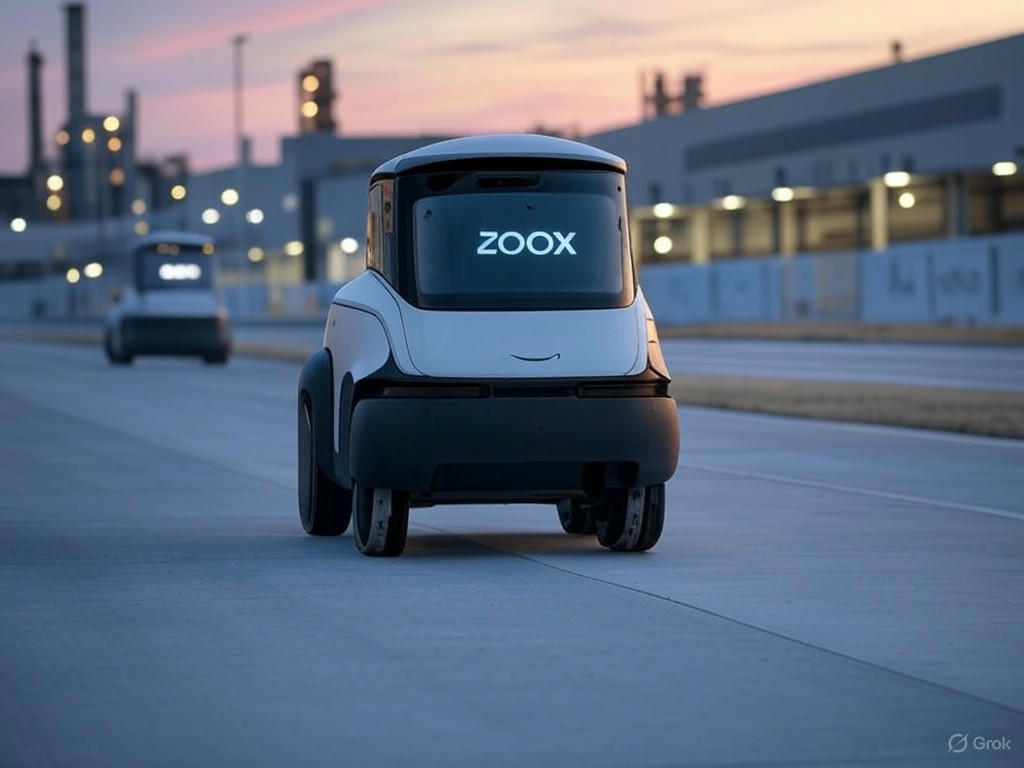In a bold move to reshape the future of urban transportation, Amazon is intensifying its efforts in the autonomous vehicle sector through its subsidiary, Zoox. The e-commerce giant has recently expanded operations at a massive facility near Silicon Valley, with plans to produce up to 10,000 self-driving taxis each year. This strategic push signals Amazon’s determination to carve out a significant share of the burgeoning robotaxi market, positioning itself as a direct competitor to industry frontrunner Waymo, a subsidiary of Alphabet Inc.
The sprawling 220,000-square-foot plant is a testament to Amazon’s commitment to innovation in mobility. Equipped with cutting-edge technology and assembly lines tailored for autonomous vehicles, the factory represents a critical step in scaling Zoox’s operations. Unlike traditional car manufacturers, Zoox focuses on purpose-built electric vehicles designed specifically for ride-hailing services, featuring a unique, boxy design without a steering wheel or driver’s seat. This approach aims to redefine how people move through cities, prioritizing safety, efficiency, and sustainability. Amazon’s investment in this futuristic vision underscores its broader goal of integrating technology into everyday life, extending far beyond online retail.
The robotaxi race is heating up, with multiple tech giants vying for dominance. Waymo has long been the leader, operating commercial autonomous ride services in select U.S. cities with a robust fleet and extensive real-world testing data. However, Amazon’s deep pockets and logistical expertise could give Zoox an edge, especially as it leverages synergies with Amazon’s vast delivery network and cloud computing capabilities through AWS. Meanwhile, Tesla’s Elon Musk has also thrown his hat into the ring, promising to unveil a dedicated robotaxi model in the near future. This growing competition highlights the transformative potential of self-driving technology, which promises to reduce traffic accidents, lower transportation costs, and alleviate urban congestion.
Challenges remain for Amazon and Zoox as they navigate regulatory hurdles, public skepticism, and the technical complexities of perfecting autonomous systems. Ensuring safety in unpredictable urban environments is paramount, and any misstep could tarnish the company’s reputation. Yet, Amazon’s track record of disrupting industries—from retail to cloud services—suggests it is well-prepared to tackle these obstacles. The company’s focus on data-driven innovation and customer-centric solutions could help Zoox build trust and reliability in its robotaxi offerings.
As Amazon ramps up production at its Silicon Valley hub, the world watches a new chapter unfold in the autonomous vehicle saga. The implications extend beyond mere transportation; they hint at a future where cities are smarter, cleaner, and more connected. With Zoox leading Amazon’s charge, the battle for robotaxi supremacy is set to redefine how we think about mobility. Whether Amazon can overtake Waymo or fend off Tesla’s ambitions remains to be seen, but one thing is clear: the road ahead is paved with possibility.
